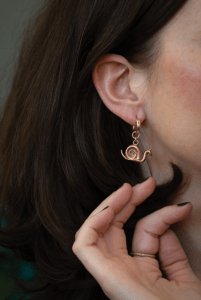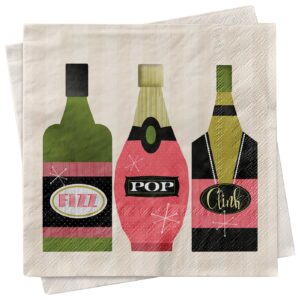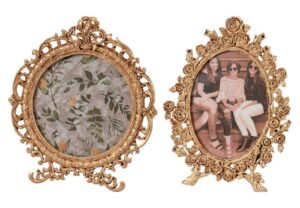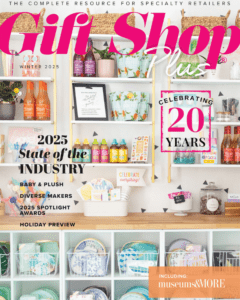The DIME Store Keeps Close to Home
Locally made and sourced products have made their way to the top of sales in many retail segments. Customers like to know where products come from and how they are made. Shelley Christner of The DIME (Denton Independent Maker Exchange) Store in Denton, Texas, goes beyond that, establishing connections between customers and the artists or “makers” behind locally made products.
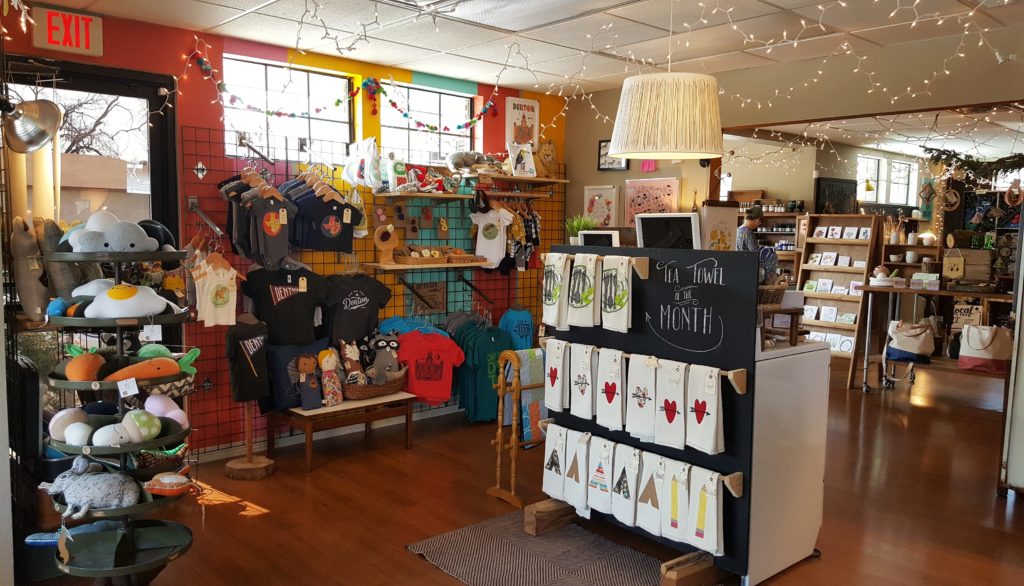 The DIME Store’s goal is to create a connection between the artists and the consumers. Christner felt inspired to establish this connection after attending a “creative mixer” held by a city councilman focused on supporting the local creative community. To create a connection between the artists and the consumers, all of the products sold at The DIME Store have been handmade by makers with a relationship to the city of Denton.
The DIME Store’s goal is to create a connection between the artists and the consumers. Christner felt inspired to establish this connection after attending a “creative mixer” held by a city councilman focused on supporting the local creative community. To create a connection between the artists and the consumers, all of the products sold at The DIME Store have been handmade by makers with a relationship to the city of Denton.
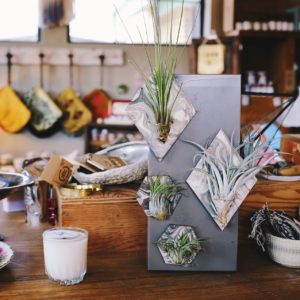
“All products in the store are made by people who live in Denton or who live in communities right outside of Denton, people who grew up in Denton that live in other places or that have gone to the universities here and are still connected to [it],” Christner explains.
When consumers shop locally made, they are supporting the local creative economy in Denton. “That’s the central focus of our business,” she says. “We’re able to really tell customers about the maker when we’re interacting with them in the store.”
Finding Local Makers
When the store opened four years ago, Christner reached out to artists she already knew in the community to fill the store’s shelves.
“Being makers ourselves, we were connected with the maker community in our town. Denton is a very creative, very art-centric community,” she says. “There are a lot of people here who are creative, and we wanted to make sure they fit what our customers were looking for.”
Christner says searching Etsy and attending farmers markets or art markets are great ways to find local artists. If an artist already has a following or appeals to a niche market, there is an opportunity for those consumers to crossover to locally made products — or vice versa. For example, The DIME Store doesn’t typically carry plants, but a current maker sells handmade cement planters with cactus plants in them. Consumers looking for that particular plant might make their way into The DIME Store and end up purchasing other locally made items.
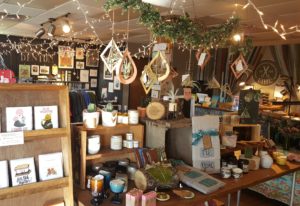
Now the store uses an application process for artists to get their products in the store. Some signage is used throughout the store to highlight the local products, but Christner says every maker brands their products themselves.
Drawing in Crowds
The DIME Store participates in First Friday, a citywide event where independent stores and art galleries collaborate to host special events or sales on the First Friday of every month. Customers typically bounce around to the various participating shops. The DIME Store actually opened during a First Friday event.
“We’ve had a great response,” says Christner of the store’s participation. “We have customers who come out every First Friday.”
The store’s consistent participation has helped build the First Friday events each year, Christner says.
“By us being consistent, other businesses in our communities have come out, and we’ve seen how other businesses have jumped on that bandwagon. At first, there were about two to three of us (participating); now there’s a bigger push and a lot of businesses are involved. A lot of people just hop around; they hop from one First Friday event to the next. It’s always a really fun evening. Every month we look forward to it and so does our community.”
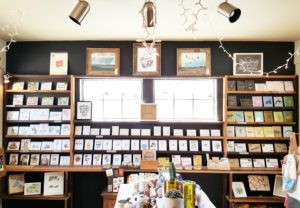
Occasionally the store will host product launch events for local makers. Oftentimes the products being introduced are related to something in the community, which draws in a larger part of the community.
One maker hosted a launch party and fundraiser at The DIME Store after partnering with Keep Denton Beautiful, a nonprofit that promotes beautifying the city, to create a coloring book.
Many of the makers at The DIME Store have also found success in being part of pop-up shops at larger retailers. A pop-up event with local makers can draw in a different demographic for the retailer, like those who are interested in handmade.
“Some of our makers have done those with stores like Anthropologie, which has been successful for our makers and those retailers,” Christner says.





